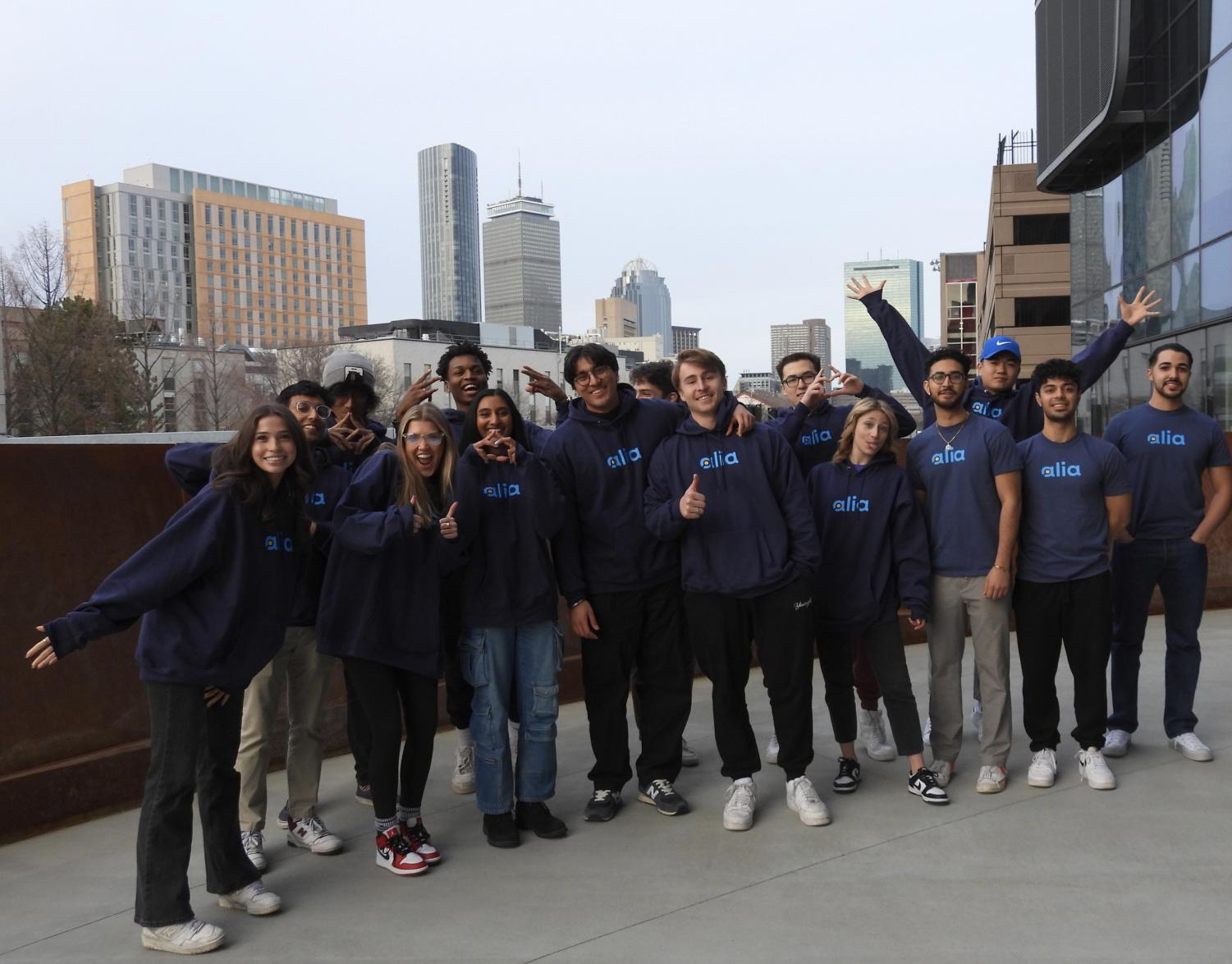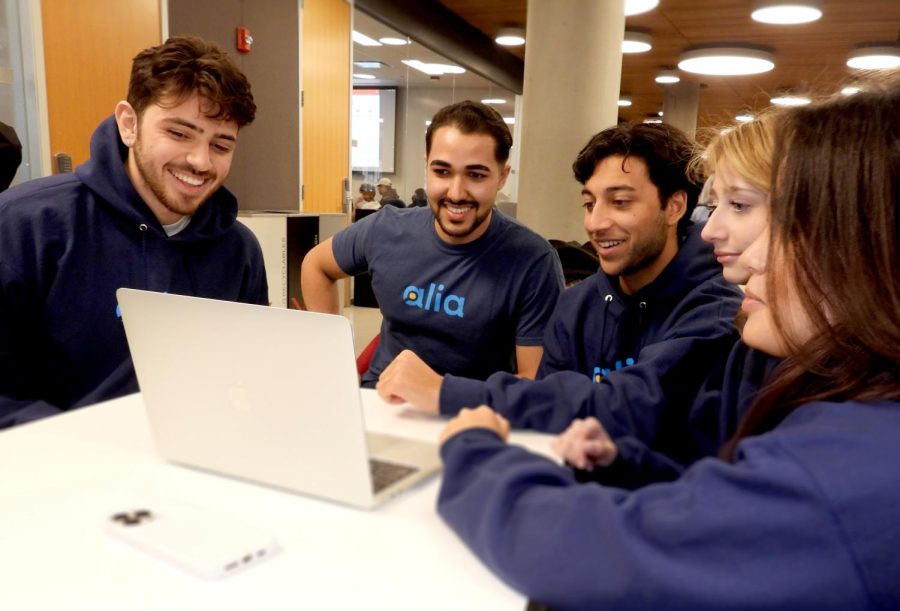Student start-up uplifts small businesses, promotes sustainable shopping
Members of the Alia team look at their website. Student founders Cory Gill and Shaan Arora hoped to grow the business into the future of online shopping. Photo courtesy Shaan Arora.
April 12, 2023
The idea for one of Northeastern’s most exciting student start-ups began on a beach in Hawaii.
“I saw this woman on the beach and she was selling these very nice bracelets,” said Shaan Arora, a fourth-year computer science and business administration combined major. “So I walked up to her and asked, ‘How do you make the bracelets?’ She said that every single morning she goes into the ocean behind her and takes out plastic from the ocean and then makes bracelets with that plastic. I thought that story was super inspirational and super cool, so I then bought a bunch of bracelets from her. When I wear that bracelet I think of that woman and I think of her story.”
That experience inspired the creation of Alia, a one-of-a-kind loyalty program that allows customers to learn about a business and earn monetary rewards and discounts for doing so. Arora co-founded the business, named after the woman from Hawaii last year with his roommate, Cory Gill. With the help of their small team of Northeastern students, Arora and Gill plan to grow their business into the future of online shopping.
Research shows that after a customer reads a company’s educational content, they’re 131% more likely to purchase from that brand, data the two used as inspiration for Alia.
“A lot of loyalty programs [are] very transactional,” said Gill, a fourth-year business administration and economics combined major. “You’re spending more in the store; you’re following their Instagram, but the true loyalty you’re going to find is getting to know the store and actually making a connection with the brand, and we’re trying to do that with education.”
Arora and Gill focus their model on customer loyalty and education. A customer learns about the company they’re buying from, answers questions based on the material and then gets points they can redeem for discounts. Their app, recently approved by Shopify, is embedded into the business’s website. Alia also has a marketplace on their website where customers can directly purchase from Alia-partnered companies. The company has a one-month free trial for small businesses, after which the businesses pay a subscription based on the number of orders they get for having Alia on their website.
Alia works to partner with small businesses with the goal of motivating customers to learn about specific brands, specifically those that are sustainable. They choose businesses based on four criteria: They conduct e-commerce on Shopify, they are open to giving out discounts, they have a unique story to tell and they are in a desirable industry. Arora and Gill said they want to uplift these businesses and even the playing field.
“Sixty percent of all shopping goes to the 15 biggest retailers online,” Arora said. “If you’re going to shop you’re basically going to go to a big retailer, which is not ideal because it’s not sustainable and it hurts smaller players. Our long-term goal is to switch the shopping behavior of customers to encourage them to shop more locally and shop more sustainably, because it will provide a better future for everyone.”

Gill and Arora met on campus through mutual friends. The two run Alia full-time on top of classes, clubs and other commitments. However, their commitment to innovation feels natural to them.
“Both of our parents ran small businesses, so it was like a passion project in many ways because we both cared about the same issue and then at the same time both of us have always been very entrepreneurial,” Gill said.
Loredana Padurean, an entrepreneurship and innovation professor in the D’Amore-McKim School of Business, serves as Alia’s advisor. Gill and Arora cold-emailed Padurean last year, asking for her feedback and guidance on their business model. She then suggested the two pitch Alia to her classes. The duo left an impact on her students for the rest of the semester and was constantly referenced by her students in class presentations and projects after their class pitch, she said.
“I invited them to come and pitch to my two sections of innovation. It was a massive success for both sides in that my students loved the concept and they gave [Gill and Arora] really significant and very extensive feedback,” she said.
Paudrean was impressed with Gill and Arora’s professionalism, discipline and enthusiasm. She was also impressed with the company’s mission.
“It takes a lot of emotional maturity to receive feedback from such a large audience. Everybody has something to say and everybody has contributions,” she said. “I do like the aspect of storytelling in the business model. Storytelling is pretty much the theme of the decade. I also like the support they try to provide small businesses.”
At the end of the day, Arora and Gill attribute much of their success to the supportive Northeastern community.
“Northeastern is a huge reason. Northeastern has so many start-ups and small businesses,” Arora said. “Northeastern is a very entrepreneurial ecosystem where everyone wants to support each other. … A lot of people at Northeastern are like that so it’s certainly inspiring.”
With their app now approved by Shopify, Alia’s will be live on business’ websites soon. For more information on Alia, visit their website or their Instagram.






